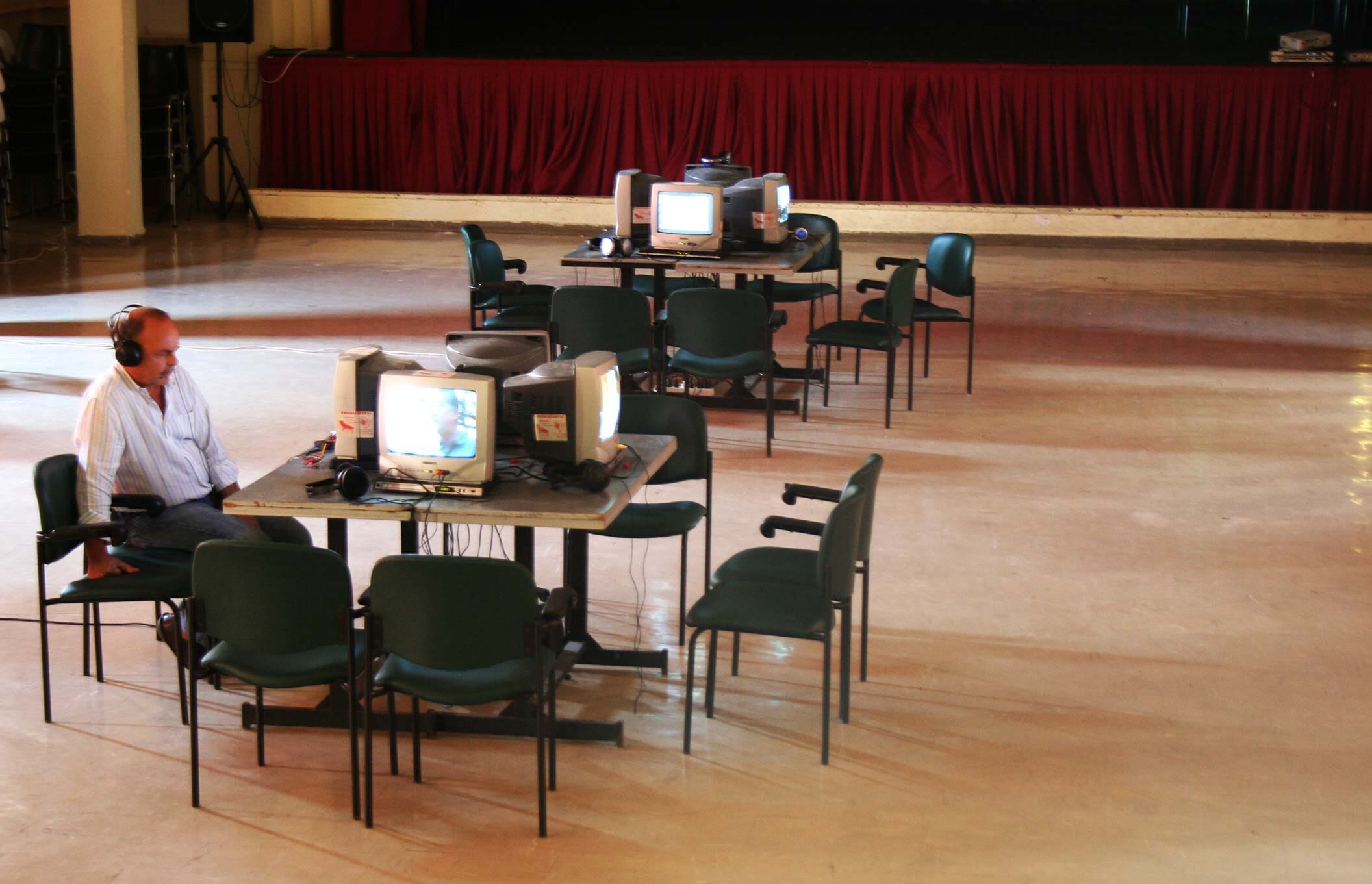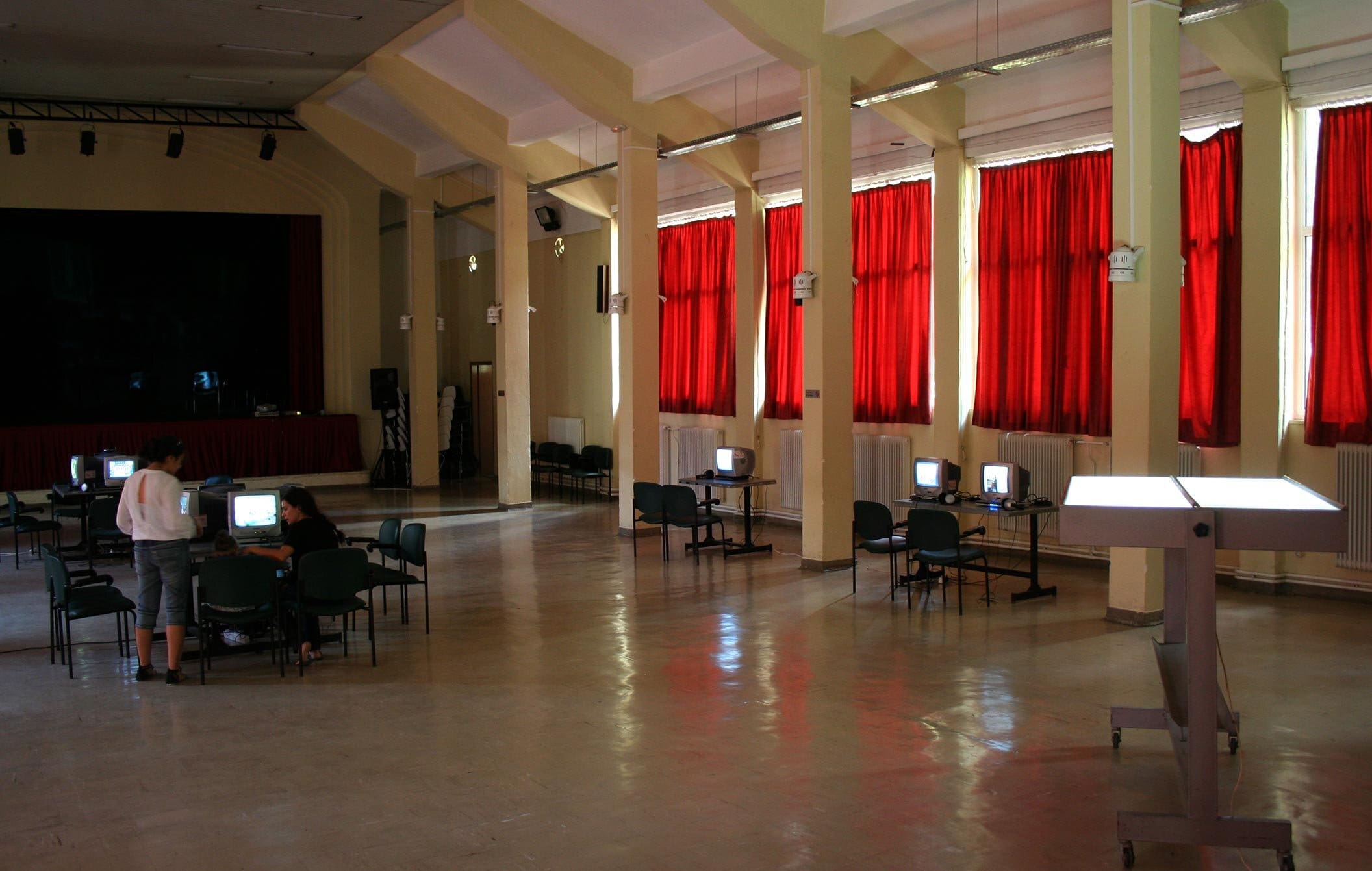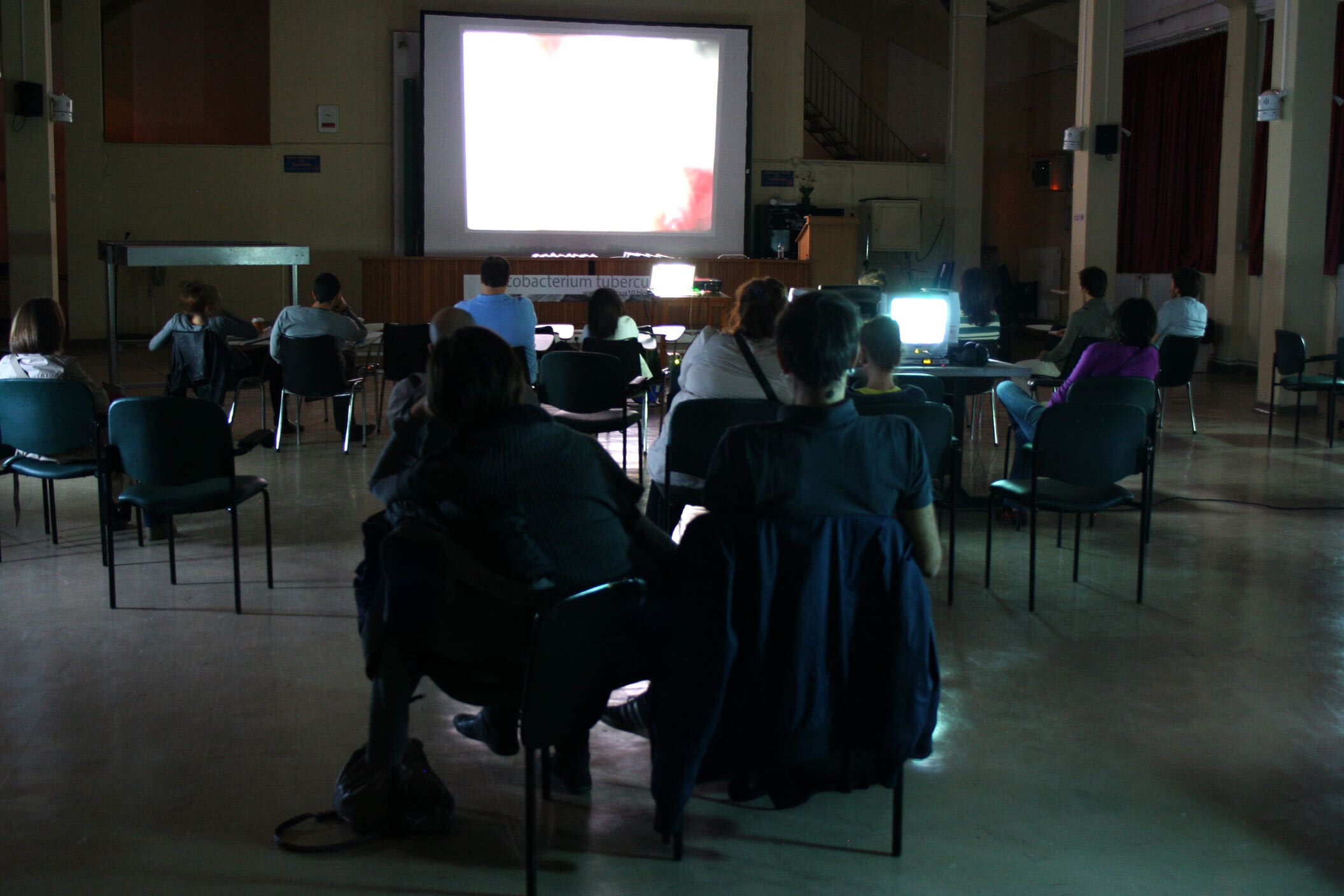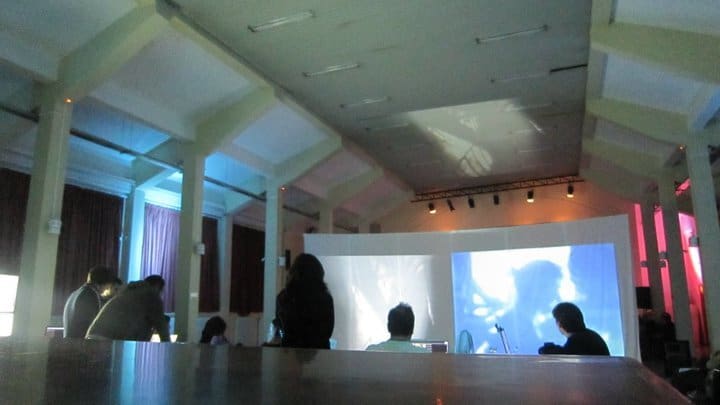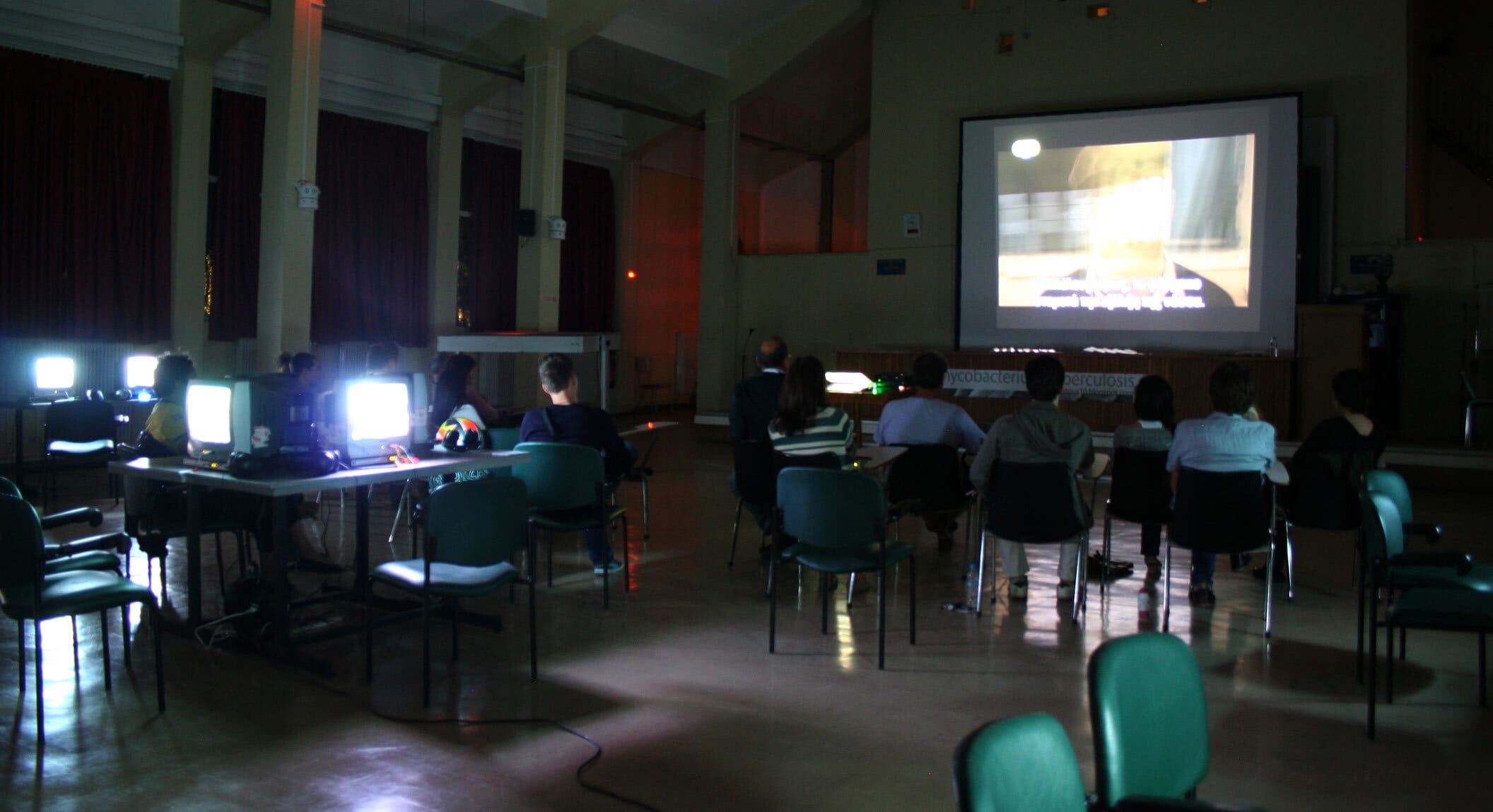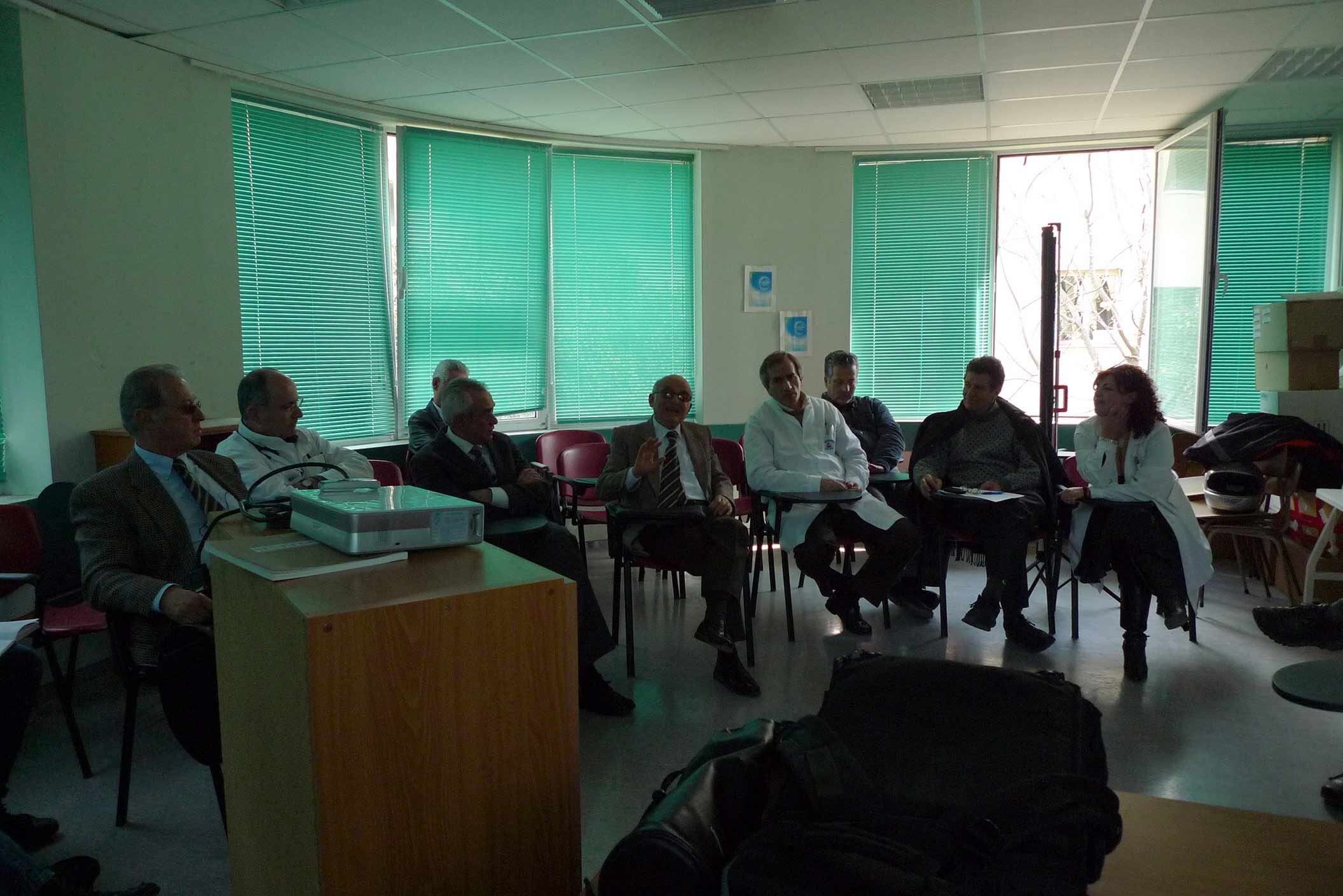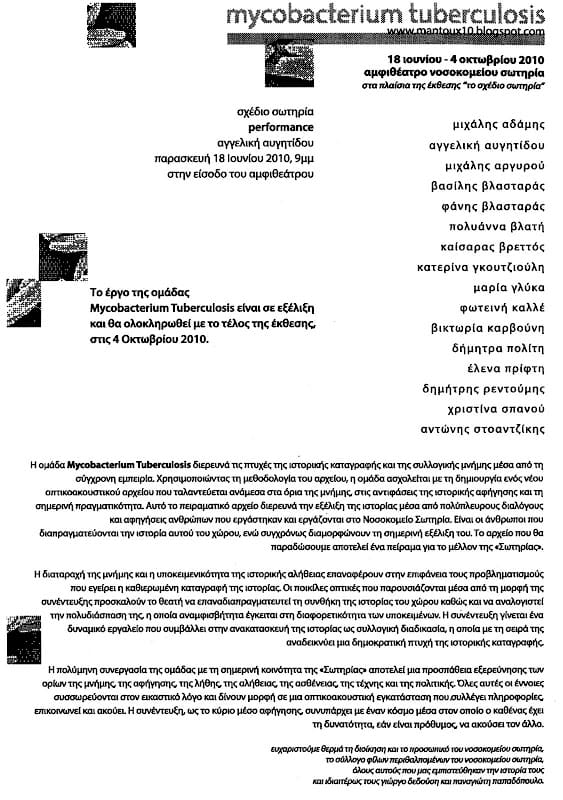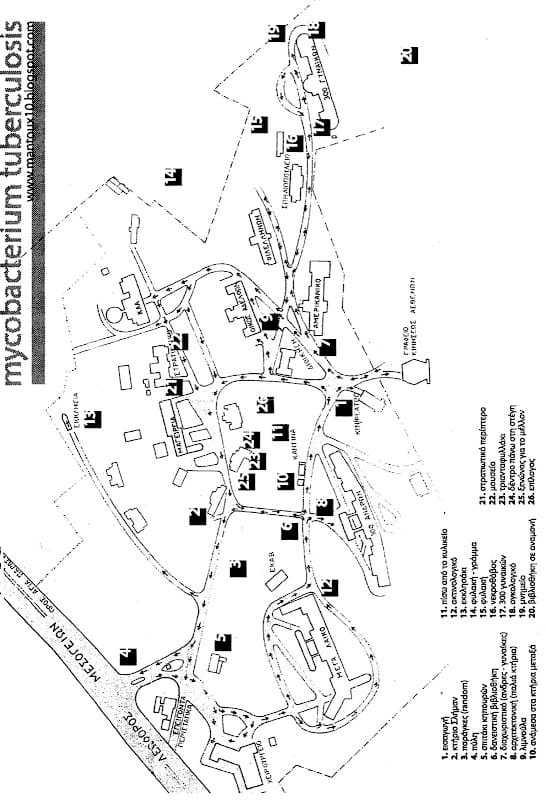Sotiria Project
Multi-media installation, by mycobacterium tuberculosis group, 2010
The Mycobacterium Tuberculosis group presented the Sotiria Project at Sotiria hospital in Athens
The group explores aspects of the historical record and collective memory through contemporary experience. Using the methodology of the archive, the group is engaged in the creation of a new audiovisual archive that oscillates between the eyes of memory, the contradictions of the historical narrative and today’s reality. This experimental archive explores the evolution of history through multifaceted dialogues and narratives of people who worked and work at the Sotiria Hospital. They are the people who negotiate the history of this place, while at the same time shaping its current evolution. The archive we will deliver is an experiment for the future of “Sotiria”.
The disturbance of memory and the subjectivity of historical truth resurface the concerns raised by the established record of history. The diverse perspectives presented through the interview format invite the viewer to renegotiate the condition of the history of space as well as to reflect on its multiplicity, which undoubtedly lies in the diversity of its subjects. The interview becomes a dynamic tool that contributes to the reconstruction of history as a collective process, which in turn highlights a democratic aspect of the historical record.
The group’s month-long collaboration with the current “Sotiria” community is an attempt to explore the boundaries of memory, narrative, forgetting, truth, art and politics. All of these concepts accumulate in the visual discourse and take shape in an audiovisual installation that gathers information, communicates and listens. The interview, as the main narrative medium, coexists with a world in which everyone has the possibility, if they are willing, to listen to the other.
We would like to thank the administration and staff of the Sotiria Hospital, the Friends of the Sotiria Hospital, all those who entrusted us with their story and especially George Dedousis and Panagiotis Papadopoulos.

